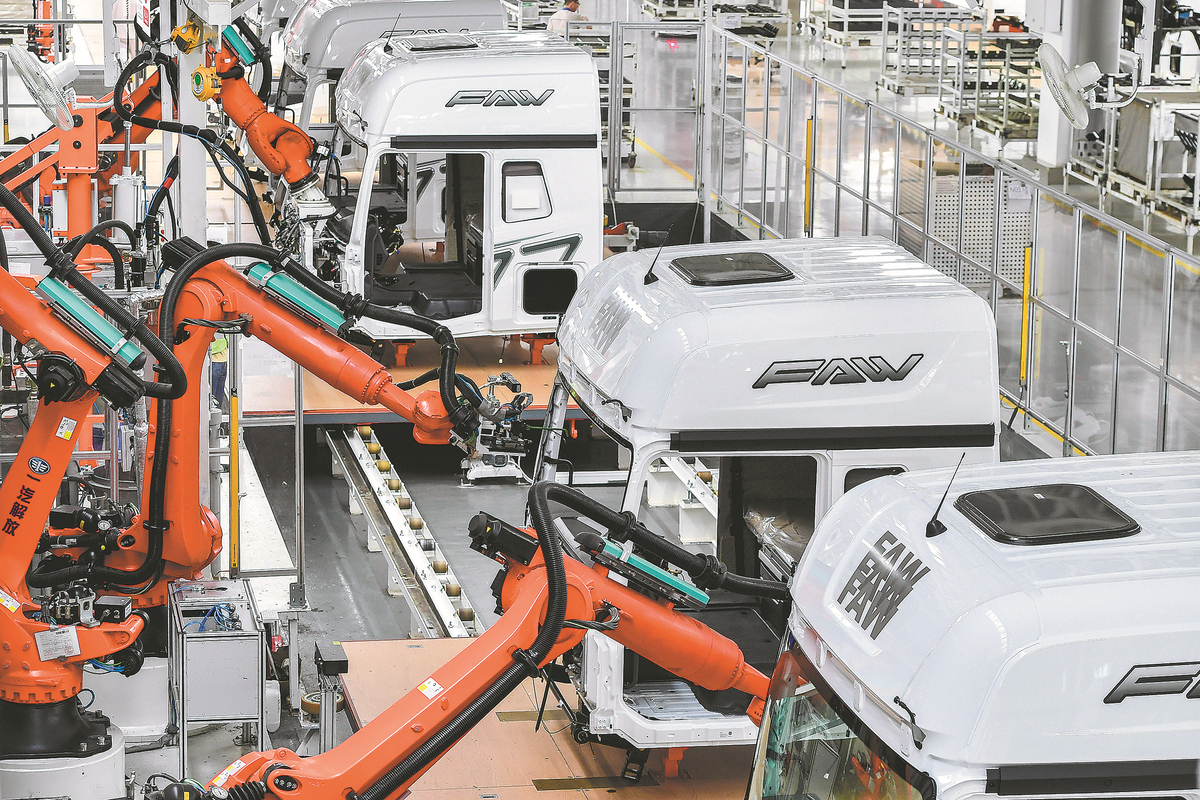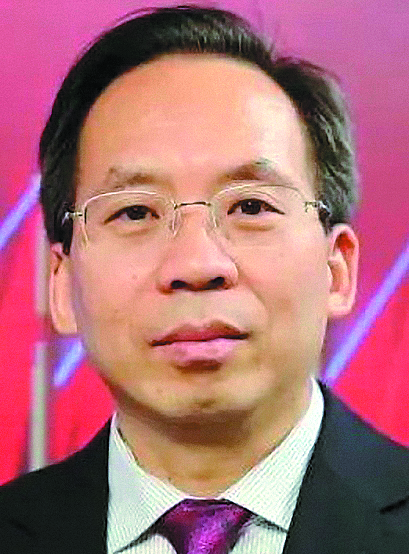Economy set to improve in 2024: Experts
Problems are 'inevitable' but can be solved; long-term prospects intact


China is expected to register better economic performance this year, thanks to its strong economic resilience and intensifying macroeconomic policy support, experts said.

Liu Shangxi, president of the Chinese Academy of Fiscal Sciences, said the country's ongoing urbanization, pursuit of low-carbon and green development, and digitalization have been generating powerful indigenous growth momentum.
In addition, with institutional advantages, China has strong capabilities to correct errors, and its unwavering efforts on reform and innovation will also continue to inject certainty into its economic development prospects, Liu said.
Huang Yiping, dean at the National School of Development, Peking University, said that China can adopt stronger macroeconomic stimulus measures this year to boost demand and create more orders for enterprises, thereby offsetting cyclical pressures of insufficient investment and consumption demand to boost economic growth.
At the same time, the country needs to adopt more measures to boost confidence and stabilize expectations, the economist said at a news conference to announce events to mark the 30th anniversary of the school this year.
"China's economic performance will become better this year" on the back of a stronger proactive fiscal policy and given the room for more monetary policy adjustments. Talk about the United States halting interest rate hikes or even cutting the rates is also a factor, he said.
"The Chinese economy indeed is facing problems that can undermine the realization of its growth potential. Among the problems are insufficient effective demand, weak social expectations and many hidden risks, Liu said.
"However, these problems can be solved. They are inevitable in the country's transition toward high-quality development, and will not change the long-term prospects of the stable and positive development trend of China's economy."
According to Huang, China still has room to further cut the reserve requirement ratio — the proportion of money that lenders must hold as reserves — and lower interest rates.
"It is advisable to lean on tools like interest rate cuts, as that will help alleviate financial burdens on businesses and households, and potentially stimulate demand," he said.
Huang also called for more measures to boost enterprises' confidence that has been dampened by geopolitical issues and the interplay between the government's optimization of regulations (in some troubled industries like real estate where build-up of price bubbles was prevented) and the impact of the COVID-19 pandemic in the past few years.
Liu said that China has a great demand advantage from its vast domestic market, and with consumption upgrade, the Chinese economy will have huge growth potential.
The country's complete industrial system and continuous upgrade of the manufacturing sector also provide a solid base for its future high-quality economic development, Liu said.
Also, the improvement in the workforce quality has been generating new demographic dividends for China faster, and the country's growing innovation capacity and financial industry development also serve as important pillars of growth, Liu said.
Huang Zhuo, deputy dean of the National School of Development, expressed confidence in the country's ability to achieve the target of 5 percent GDP growth this year.
He also emphasized that the primary concern at present is restoring confidence among entrepreneurs, necessitating policies to alleviate burdens on enterprises and bolster business and consumer confidence. More efforts are also needed to alleviate the debt burdens of local governments and tackle debt issues plaguing the real estate industry.
Huang Yiping expressed cautious optimism, especially over the implementation of various policies aimed at improving the business environment and supporting the development of the private sector.
However, the dean acknowledged that it may take time to see those measures gradually take effect, given the complex economic landscape.
He stressed the importance of maintaining a policy environment conducive to sustaining China's reform and opening-up initiatives, thus ensuring continued progress and growth.
Contact the writers at liuzhihua@chinadaily.com.cn




































